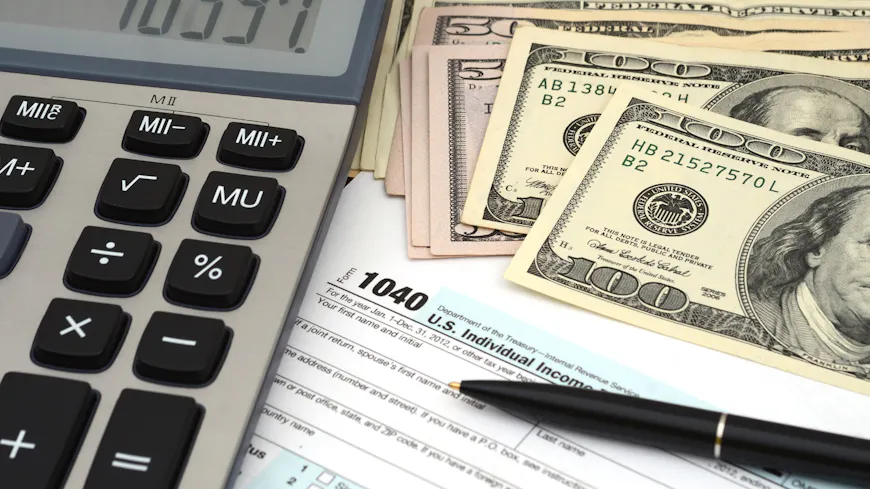What’s the best thing about doing your taxes?
Watching the amount you owe drop and the amount you get back skyrocket!
But chances are you can make the amount you’re getting back even higher. It’s all about claiming the right credits and deductions.
Quick fact:
A tax credit is money you subtract from the total amount of taxes you owe to the government, while a tax deduction lowers the amount of your taxable income.
More about tax credits vs. tax deductions in our comparison fact sheet.
The problem is that there are so many deductions to keep track of, it’s easy to miss a few. But that’s a rookie mistake. So here we’ve highlighted five common tax deductions you should definitely know about so you don’t miss out on them!

1. Home office deduction
Calling all entrepreneurs and home business owners! Did you know you can deduct certain business expenses if you use part of your home as your office?
The home office deduction is for both owners and renters who use a part of their home as the primary place of business. This place in your home must be used regularly and exclusively for business. So unfortunately, working at the kitchen table won’t get you this deduction. But, if you have a spare room that you turned into an office, you may be eligible.
You can deduct expenses related to the maintenance and upkeep of your office space, including repairs, insurance, and utilities.
2. Charitable contribution deduction
It pays to be generous.
The charitable contribution deduction allows you to deduct money you sent to qualifying charities from your taxes.
A charitable contribution is a voluntary donation or gift to a charity that is made without getting or expecting anything in return.
Qualified charities include nonprofit groups that are religious, educational, scientific, literary, or that work to prevent cruelty to children or animals.

3. Student loan interest deduction
If you’ve studied in the US, you know it’s expensive. Really, really expensive. On top of that, not only do you have to pay back your student loans, but you have to pay them back with interest.
So if you’re paying student loan interest, don’t forget to deduct it on your tax return. Every year, you will receive a 1098-E student loan interest payment statement from your loan provider which details how much you’ve spent on interest.
4. Medical and dental expenses deduction
You are allowed to deduct qualifying medical and dental expenses that exceed 7.5% of your adjusted gross income. Examples of eligible expenses include:
- Payments of fees to doctors, dentists, surgeons, etc.
- Payments for inpatient hospital care or nursing home care
- Payments for acupuncture treatments
- Payments to participate in a weight-loss program
- Payments for dentures, reading or prescription eyeglasses, and contact lenses
Plus, there are many, many more expenses that qualify. If you’re not sure if your specific medical or dental expense qualifies, you can take this test from the IRS to make sure.

5. Sale of home deduction
If you’ve sold your home, the sale of home deduction allows you to exclude the first $250,000 of profit from your income and avoid paying taxes on it. If you file as a married couple filing jointly, the exclusion is increased to $500,000.
Considering the sale of a home will greatly increase your yearly income, this is a deduction you do not want to miss! Otherwise, the amount you will owe will significantly increase too.
Are you ready to file your tax return?
Now that you know which deductions can’t be missed, are you ready to get started on your taxes?
Whether you’ve filed many times before or this is your first time, taxes never seem to get any more fun, but it’s all about taking the first step and hoping you’ll get some money back.
Check out some of our other tax resources too if you need more help, including a taxes prep list, a a guide to filing business and taxes, and Taxes and DACA: Everything You Need to Know to help you along the journey!

